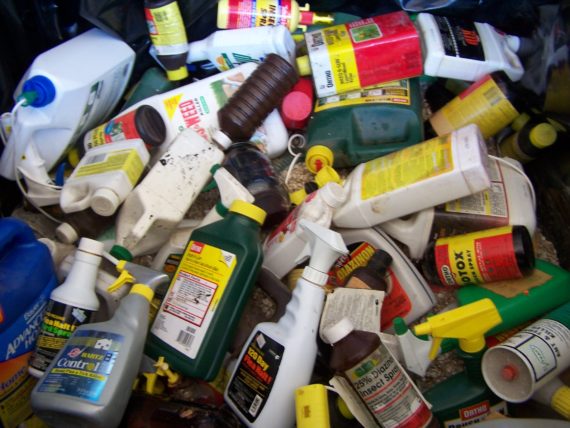
Medical Waste
Your Trusted Partner for Biomedical Waste Management Solutions
You now have a choice when it comes to managing your practice’s biomedical waste needs.
With unparalleled service options, no long term contracts, and an ability to handle medical, hazardous, pharmaceutical and electronics waste, BioServ is the hassle-free choice in biomedical waste management solutions.
Hospitals
Medical Practices
Dental Practices
Surgery centers
Endoscopy centers
Cancer centers
More
House Hazardous Waste
Household hazardous waste is the discarded, unused, or leftover portion of household products containing toxic chemicals.
These wastes CANNOT be disposed of in regular garbage. Any product which is labeled WARNING, CAUTION, POISONOUS, TOXIC, FLAMMABLE, CORROSIVE, REACTIVE or EXPLOSIVE should be considered hazardous.
You can’t treat hazardous wastes like other kinds of garbage. For example, buried wastes can filter down through the soil and contaminate groundwater.
Plumbing systems can be damaged when corrosive chemicals are put down the drain.
Burning hazardous wastes simply distributes them over a larger area and releases them into the air.
Pouring hazardous liquids on the ground can poison soil, plants and water.
Some examples of hazardous wastes you may find around your house include:
antifreeze
batteries
brake fluid
chemical strippers
chlorine bleach
contact cement
drain cleaners
fire extinguishers
flea collars and sprays
herbicides
insecticides and insect repellent
kerosene
lawn chemicals
lighter fluid
lye
mothballs
nail polish remover
old propane tanks
paints
pesticides
pool chemicals
prescription drugs
solvents
spot removers
stains and finishes
toilet cleaners
used motor oil
oven cleaners
If you do find these products around your home, there are proper ways to dispose of them.
It is important to remember that bottles and containers that may be empty should still be disposed of in a safe manner because of residue that remains in the container.
The easiest and perhaps best way to deal with household hazardous wastes is through reducing and recycling.
It is best to try and reduce the number of hazardous chemicals you have around your house at one time.
It is also best to recycle as much as possible by giving leftovers to friends or community organizations.
There are many less toxic alternatives to the hazardous materials you may have around the house; please see the links below for some of these alternatives.

Many communities have organized household hazardous waste collection events where these materials are collected and disposed of by local authorities free of charge.
Check with your local waste management facility, fire department, or county extension office for more information.
Crime Scene Cleanup Qualifications
EPA Licensed
EPA Certified Hazardous Waste Hauler
All Employees have OSHA WAZWOPER WORKER COURSE completion
All Employees have Bloodborne Pathogens Certification
NYS DMV Quailified in Transport of Hazardous Materials
TSA Qualified in Transport of Hazardous Materials
DOT: Hazmat General & Security Awareness
For a full list of Certifications, Licenses, and Qualifications, Visit our Certifications Page
